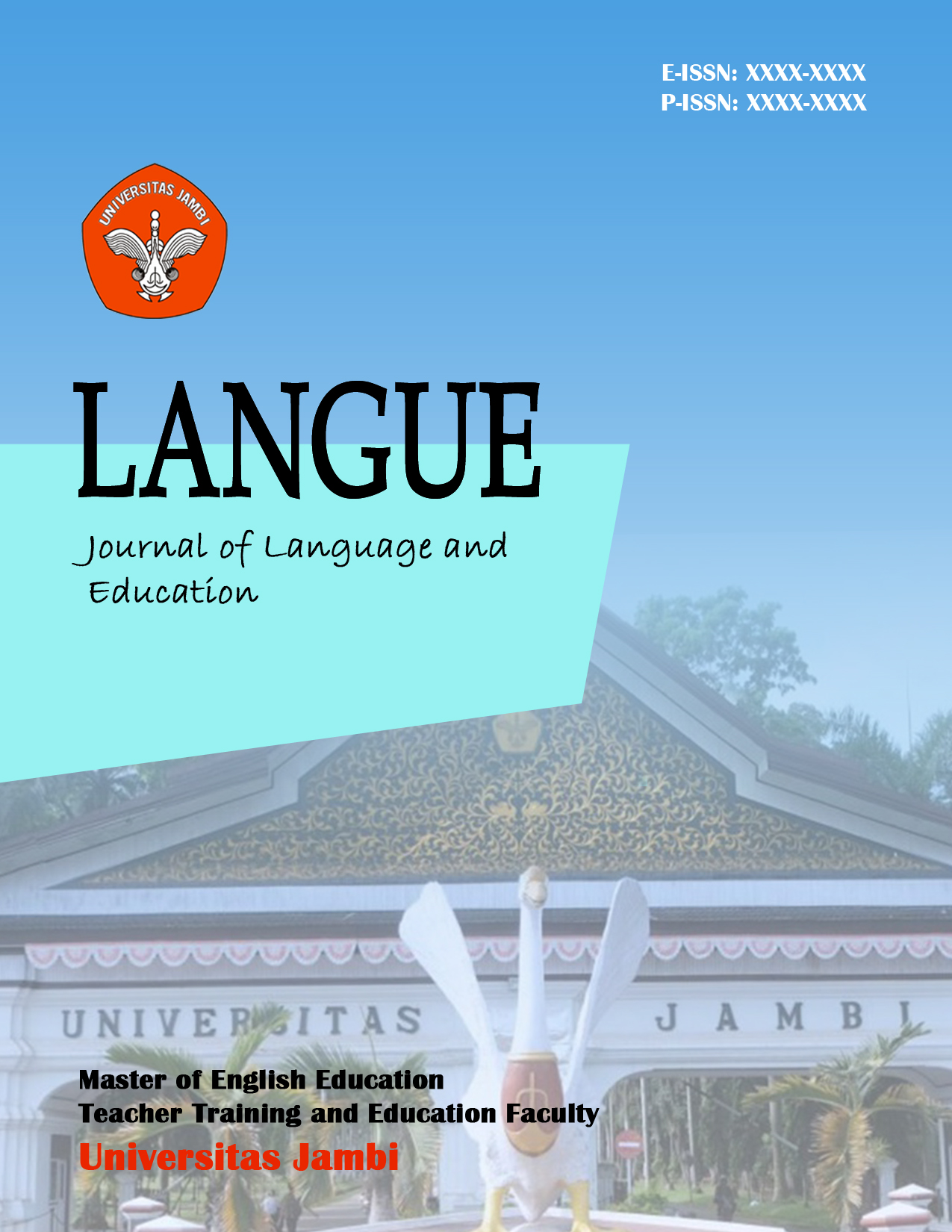THE DEVELOPMENT OF READING PROCEDURAL TEXT LOCAL CULTURE-BASED MATERIAL AT MTS LABOR JAMBI
DOI:
https://doi.org/10.22437/langue.v2i2.30101Keywords:
speaking skill, inquiry based learningAbstract
This study aims to develop speaking for general purposes teaching materials based on an inquiry-based learning approach in Jambi University English education study program. This inquiry-learning approach-based teaching material was developed to improve students' speaking skills based on the inquiry process. This research is also a form of implementing learning with a project based learning (PJBL) program for listening and speaking courses for general purposes. The subjects of this development research are students of the first semester of the English education study program for the 2020/2021 academic year. They took the Speaking for general purpose course which is offered in the first semester. This research uses a Research and Development approach. The approach used in this research uses three stages, namely the exploration stage which includes analyzing the needs for teaching materials, the prototype model development stage which includes designing the model and testing the model and the validation stage which includes expert validation. (Sukmadinata (2008). The data collected at the exportation stage is speaking for general purpose based on inquiry. The material made is a prototype speaking for general purpose based on inquiry-based learning. In developing the material, researchers use YouTube online as a teaching and learning medium. Developing activities and learning and their assessments as one of the manifestations of student-centered learning (student based learning). Researchers develop a class management system and monitor and evaluate learning. Researchers also reflect on the learning process associated with the results of case methods and project based learning with innovative development of solving a case, increasing student participation in analyzing cases and finding solutions collaboratively. In the case method model, the lecturer provides a description of a situation that requires the actors in the situation to take l certain decisions to solve a problem. Based on the information presented in the case, students choose alternative problem solving that is considered the most appropriate based on an understanding of the problem, analysis and comparison of available alternative solutions.








